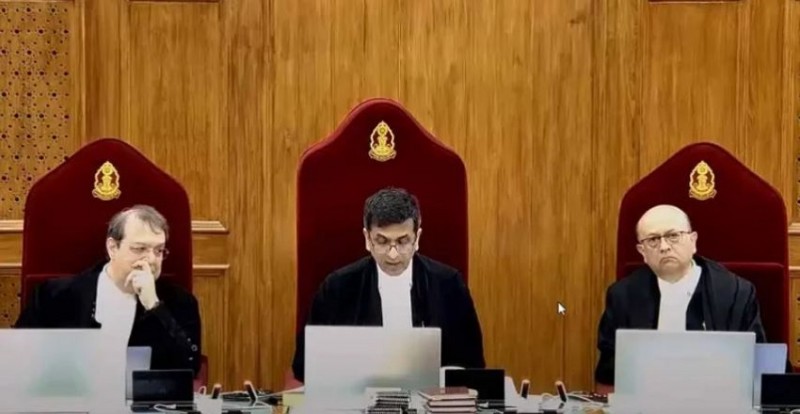
NEW DELHI: In response to the growing nationwide protests over the tragic rape and murder of a trainee doctor at Kolkata's RG Kar Medical College and Hospital, the Supreme Court has taken decisive action. On Tuesday, the court set up a 10-member National Task Force (NTF) to develop a protocol that will ensure the safety and security of doctors and healthcare professionals across the country.
The court described the incident as "horrific" and criticized the state government for delays in filing a First Information Report (FIR) and allowing the state-run hospital to be vandalized by large groups of miscreants. Additionally, the Supreme Court urged the West Bengal government to exercise restraint and sensitivity towards peaceful protesters during this period of national grief and reflection.
The newly formed task force, led by Vice Admiral Arti Sarin, has been directed to submit an interim report within three weeks. In addition, the Supreme Court has tasked the Central Bureau of Investigation (CBI) with providing a status update on the investigation into the murder. The state government has also been asked to provide an account of the actions taken against those responsible for the destruction of hospital property.
The court expressed its concern about the widespread publication of the victim’s name, images, and videos of her lifeless body in the media. Taking this seriously, the court condemned the mob violence that erupted in the hospital and the reported withdrawal of police forces from the scene. In response, the Supreme Court ordered the deployment of the Central Industrial Security Force (CISF) at the hospital to ensure the safety of staff and allow doctors to resume their work.
Chief Justice DY Chandrachud led the court in condemning the former principal of RG Kar Medical College, Dr. Sandip Ghosh, for initially labeling the case as a suicide and preventing the victim's parents from seeing her body for several hours. The bench questioned the lack of urgency in registering the FIR and allowing the body to be released late at night.
"What was the principal doing? Why was there an attempt to dismiss this as a suicide instead of investigating it properly? The body was handed over to the parents for cremation late at night, and by the next day, protests had begun, and a mob had gathered at the hospital," the bench remarked. The court also questioned why Dr. Ghosh was transferred to another hospital while his conduct was still under scrutiny.
The court emphasized that this case is not just about a tragic murder but also highlights systemic issues surrounding the safety of healthcare professionals, particularly in public hospitals. The bench pointed out the lack of adequate work conditions for young doctors, who often work shifts as long as 36 hours. The court called for the development of a national protocol to ensure safe and appropriate working conditions, including proper rest facilities for both male and female doctors and nursing staff.
"If women cannot safely attend their workplace, we are denying them equality," the bench stated.
Senior advocate Kapil Sibal, representing the West Bengal government, contested the court's observations and insisted that the Kolkata police had taken all necessary actions. He mentioned that the area had been cordoned off and the case had been registered as unnatural death shortly after the incident occurred.
Solicitor General Tushar Mehta, however, argued that a mob of 7,000 people could not have gathered without the police being aware of it. He criticized the state for its failure to maintain law and order, stating, "A girl has lost her life because of a perverted individual."
Sibal reassured the court that over 50 FIRs had been filed in connection with the vandalism and 37 individuals had been arrested. The court reminded the West Bengal government to refrain from taking coercive measures against peaceful demonstrators and those expressing their views on social media.
“This is a time for national reflection,” the court emphasized, urging the state to handle the situation with care and sensitivity.
The trainee doctor's body was discovered on August 9, with severe injuries, in the seminar hall of the hospital's chest department. A civic volunteer was arrested the following day in connection with the crime.